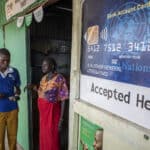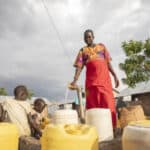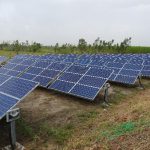Make no presumptions. Let your business model be informed by a thorough assessment of the customer needs.
A lot of businesses also assume that refugees and their host communities are poor. However, this can be a misleading assumption, and makes them hesitant to engage. Having the right data to make decisions is ideal in order to avoid misconceptions and instead concentrate on the realisation that your product is not only fit for the market, but that there is a willingness and ability to pay for it.
When it comes to recruiting local people and refugees, we suggest a “wide fishing net approach”. This is where an organisation gets a large pool of people to work with on a casual basis initially. With time, rather than conducting conventional interviews, they ought to confirm and permanently employ employees that demonstrate a good work ethic, openness to learning, training and collaboration.
We look forward to delivering energy and appliances for productive use to at least 250 businesses in Kakuma and Kalobeyei by 2025. The systems will be managed and monitored by
our Metering Monitoring and Dispensing (MMD) and Internet of Things (IOT) software known as PowerPay. We also look forward to scaling that up to at least 1000 businesses by 2030.
Most of all, we look forward to documenting and sharing what we have learned and the impact that the project will have on the cost revenue structures of the businesses and seeing them expand their operations for the benefit of their customers. We also are excited about creating jobs, especially for young people in the host community as well as among the refugees.
One of the challenges that we have had to overcome is finding locally qualified staff to take up roles. To solve this, we have had a pool of 50 young men and women that we trained as solar home sales representatives working on a commission basis. From this pool, we have been able to pick out a talented sales and marketing representative from the refugee community.
We have also overcome the challenge of unwillingness or inability to pay by conducting a study on the businesses operating in Kakuma. This has enabled us to work on our unit economics and ensure that we shall not only do an impactful business but a profitable one as well.
GIVE Ltd initialised its operations in Kakuma/Kalobeyei area in September 2020, in partnership with The Netherlands Development Organisation (SNV) under the MBEA II EnDev project that supported marketing and other soft costs like travel and surveys. Although GIVE Ltd sought to provide solar home systems (SHS) to businesses and households, the company soon realised that there was a market gap since the SHS and other existing solutions were not meeting the needs of enterprises in Kakuma due to low capacity.
With further research and investigations, we noted that there was Missing Market Failure, i.e., a mismatch between the demand and energy products available (small solar home systems), high mini-grid tariffs and lack of appropriate Pay-As-You-go AC power solutions. Power was/is supplied for only 4-5 hours/day, costing businesses up to US$200 per month, in addition to being highly unreliable.
However, in order to meet the energy needs of the various businesses, a large capital outlay was required for each business since the initial capital outlay was too high. Operational costs for the business were very high due to the remoteness of the area, and we were forced to step back and look for finances to subsidise our entry into the Turkana region, and enable us to provide both the equipment and business operational support to the consumers. This is the point at which KKCF’s intervention was strategic.


